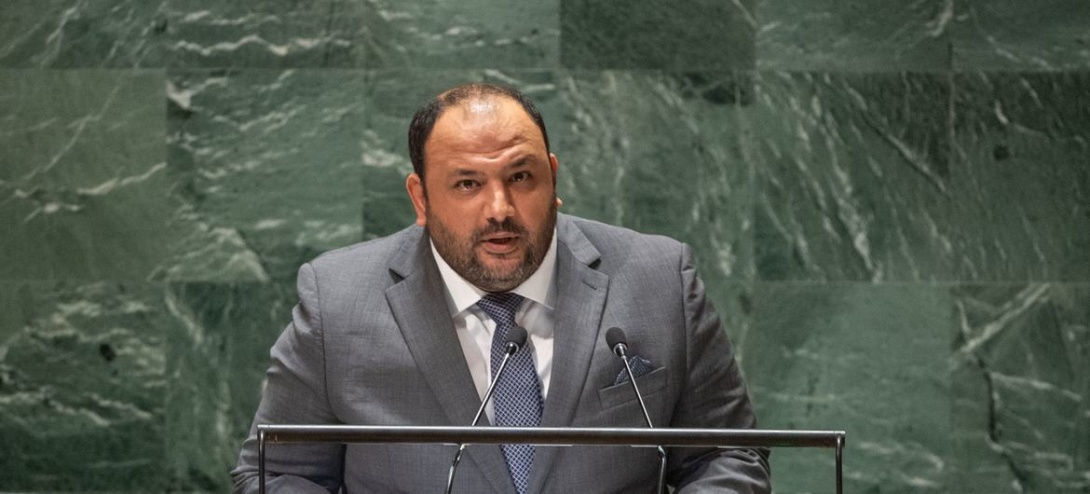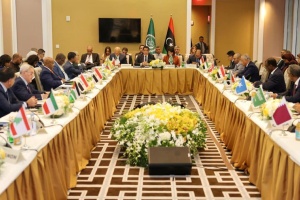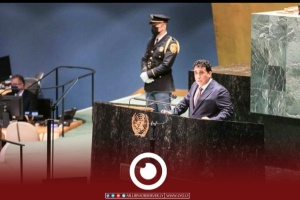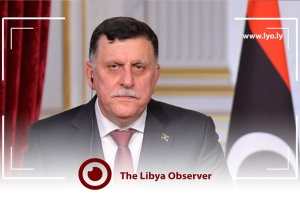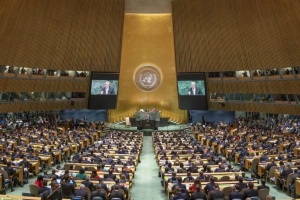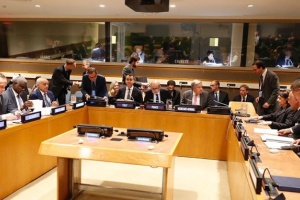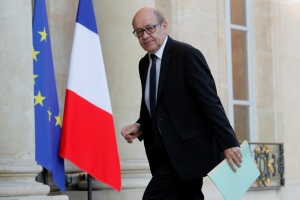The Minister of Youth of the Government of National Unity (GNU), Fathallah Al-Zeni, addressed the UN General Assembly, saying that the Derna disaster resulting from the floods that swept the city and the Jabal Al-Akhdar areas over a week ago had united Libyans, indicating that the people now no longer needed weapons, after criticizing the negative international intervention in Libya, a statement by the Ministry of Youth said on Facebook.
Al-Zeni delivered Libya’s speech at the 78th session of the General Assembly in New York on Thursday after the Head of the Presidential Council, Mohammed Menfi, and the Prime Minister, Abdul Hamid Dbeibah, apologized for not participating this year due to the flood disaster that the eastern regions of Libya was witnessing.
At the beginning of his speech, Al-Zeni offered his condolences to the Libyan people and the families of the victims of the massive floods in the east of the country, especially Derna, Al-Bayda and Sousse. He also offered his condolences and sympathy to the Moroccan king, government and people after the earthquake that struck several Moroccan cities two weeks ago.
Al-Zani said, “The Libyans and the entire world woke up on the morning of Sunday, September 10, to a terrible scene and a major disaster that befell the city of Derna. We were astonished by the disasters below it that spread around the cities and villages of Jabal al-Akhdar in the east of the country. On this day, thousands were killed or lost touch, after... "The floods swept away their homes."
Al-Zeni said that despite the efforts made by the GNU, security and medical agencies, and rescue teams from all parts of the country that participated in dealing with the disaster, including evacuating the population, helping the stranded, burying the dead, and containing the health situation, the size of the disaster exceeded all local capabilities.
He added that the disaster in Derna gave the Libyan people the spirit of unity, solidarity and cohesion, explaining that the Libyan people, immediately after the disaster occurred, shook off the accumulations of political division and war to rise above the wounds of the past, and lay the features of the future that they saw with their own eyes for future generations, not through the eyes of politicians and warmongers.
Al-Zeni concluded his speech by saying that the Libyan people no longer needed weapons to fight with, and all the hotbeds of incitement and seeds of tension that negative international interventions had been creating and which narrow personal and factional ambitions had maintained were swept away by the floods into the sea.

